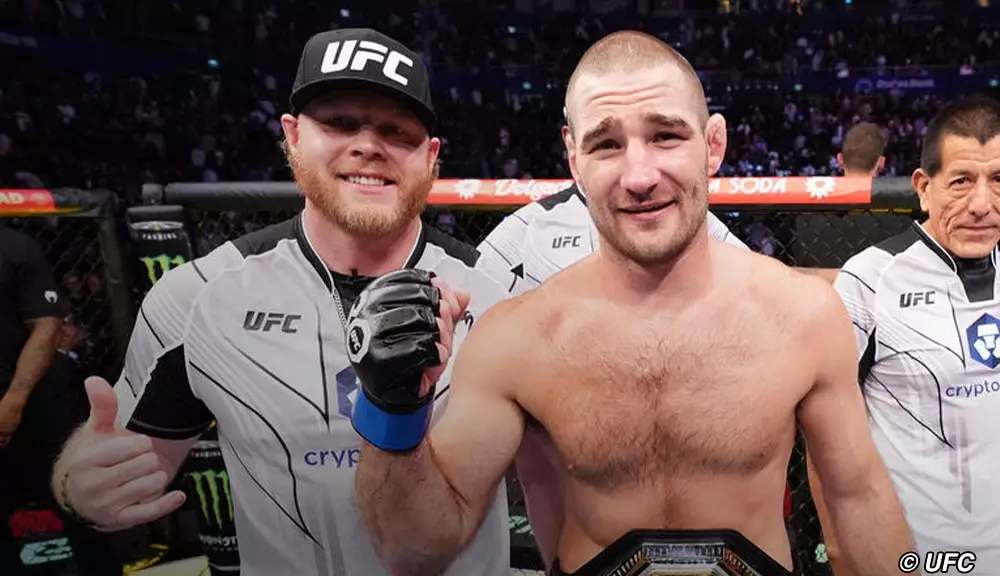Sean Strickland’s latest fight against Dricus Du Plessis at UFC 312 left him grappling not only with a defeat but also with the fallout of his coach’s public criticisms. Eric Nicksick, who has been a crucial figure in Strickland’s ascent in the middleweight division, expressed his disappointment in a rather blunt manner during an appearance on “The Ariel Helwani Show.” His comments were not merely a reflection of the match but seemed to hint at a deeper concern regarding Strickland’s commitment to the sport. Nicksick’s discontent is especially striking given the coach’s previous role in guiding Strickland to his championship victory over Israel Adesanya just a few months prior. The tensions raised questions about what drives a fighter and the expectations placed on them by their coaches and supporters.
Injury and Adversity: A Fighter’s Mental Strain
Strickland entered the octagon on Saturday with a significant injury, having endured a broken nose that hampered his performance as the fight progressed. While champions often face their share of adversities, the psychological toll of battling both an opponent and personal turmoil cannot be overstated. Strickland’s struggle in this match, coupled with the injury, undoubtedly played a role in his disappointing performance, resulting in a unanimous decision loss after five grueling rounds. In the world of combat sports, the mind is as crucial as physical condition, and Strickland’s mental state could have been compromised due to the pressures of the fight coupled with the expectations set by Nicksick.
Following Nicksick’s unvarnished critique, Strickland responded via social media, shedding light on the challenges he faced in the lead-up to the fight. He acknowledged the bond they share on a personal level but suggested that their professional relationship might be at a crossroads. With comments indicating that, while he values Nicksick as a friend, the dynamic of having him in his corner might shift in the future, this disclosure opens the door for speculation about the evolving nature of their partnership. The tone of Strickland’s remarks reflects a fighter’s need for support during difficult times, but also the awareness that not all partnerships can endure the pressures of high-stakes competition.
Strickland’s career trajectory following this puzzling and challenging bout remains uncertain. The former champion’s future in the UFC is now peppered with questions about the direction he will choose in light of the coaching rift and the need for redemption after such a lackluster showing. As Strickland contemplates his next steps, he must weigh the costs of maintaining his relationship with Nicksick against the potential benefits of seeking guidance from other teammates or coaches at Xtreme Couture.
In a sport defined by fierce competition and relentless personal struggles, Strickland finds himself at a crucial juncture. His path forward will undoubtedly be influenced by the lessons learned from this recent defeat and the clarity he gains in understanding his own motivations and aspirations within the realm of mixed martial arts.

